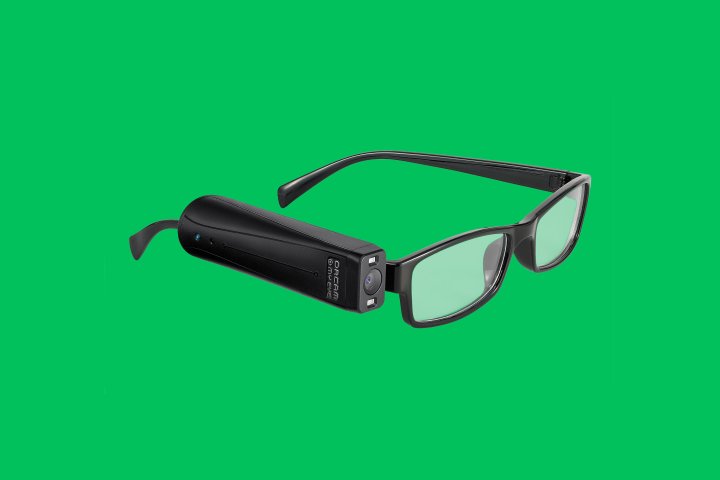A product made by the Jerusalem based hi-tech company OrCam, whose mission is to “harness the power of artificial vision by incorporating pioneering technology into a wearable platform,” to improve the lives of individuals who are blind, visually impaired, and have reading difficulties, was picked as one of Time Magazine’s 100 best inventions of 2019.

Sanya Mansoor wrote for the Time selection, Vision Made Audible: “For those living with visual impairments, the OrCam MyEye 2 could be a game changer. Described as “talking glasses,” the artificial intelligence device attaches to the frame of any glasses and can identify faces and currency or read text and information from bar codes aloud.
<!–
Publisher #16: JewishPress.com
Zone #113: Comment Banner / (02) / News
Size #15: Banner 468×60 (Comments and Mobile) [468×60]
–> ‘); _avp.push({ tagid: article_top_ad_tagid, alias: ‘/’, type: ‘banner’, zid: ThisAdID, pid: 16, onscroll: 0 });
“Fitting all this power into such a small device is like ‘putting an elephant into a small closet,’ says Amnon Shashua, inventor of the technology. OrCam MyEye 2 can also be useful for those with reading difficulties like dyslexia.
“A newer version, which is scheduled to come out next year, will allow users to get even more specific, like telling the machine to read only the headlines of a newspaper, or only the appetizer section of a menu. The device is available in 48 countries and has even been used in Israeli elections to help blind and visually impaired citizens cast their ballots.”
OrCam was jointly founded in 2010 by Prof. Amnon Shashua and Ziv Aviram, who are also the co-founders of Mobileye, the collision avoidance system leader and autonomous driving innovator. The original OrCam MyEye device was launched in 2015, and the next generation OrCam MyEye 2.0 was launched in 2017. The company has 150 employees, with offices in New York, Toronto, and London.
In 2016 JAMA Ophthalmology conducted a study involving 12 legally blind participants to evaluate the usefulness of a portable artificial vision device (OrCam) for patients with low vision. The results showed that the OrCam device improved the patient’s ability to perform tasks simulating those of daily living, such as reading a message on an electronic device, a newspaper article or a menu.
Wills Eye was a clinical study designed to measure the impact of the OrCam device on the quality of life of patients with End-stage Glaucoma. The conclusion was that OrCam, a novel artificial vision device using a mini-camera mounted on eyeglasses, allowed legally blind patients with end-stage glaucoma to read independently, subsequently improving their quality of life.
‘);
_avp.push({ tagid: article_top_ad_tagid, alias: ‘/’, type: ‘banner’, zid: ThisAdID, pid: 16, onscroll: 10 });




